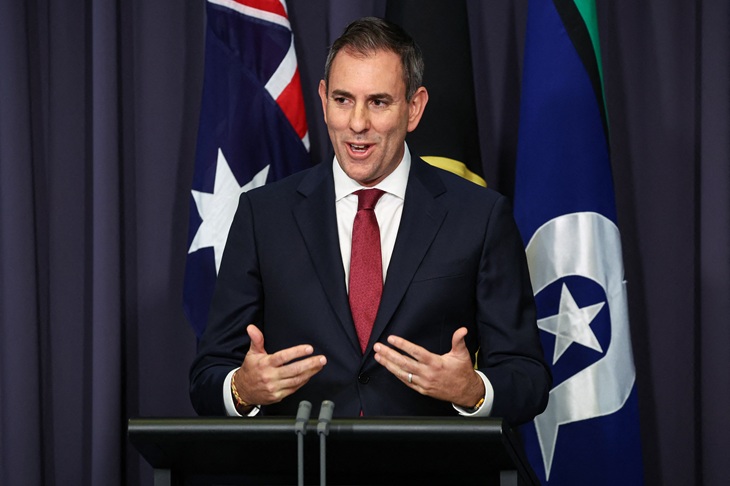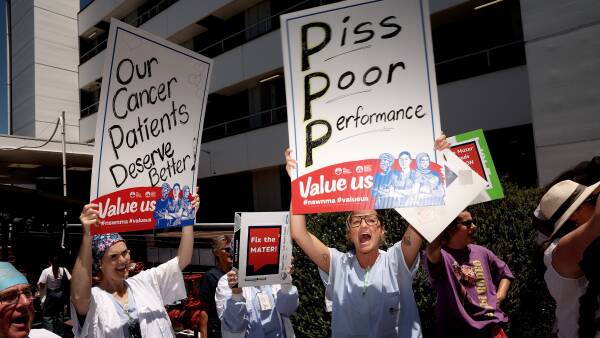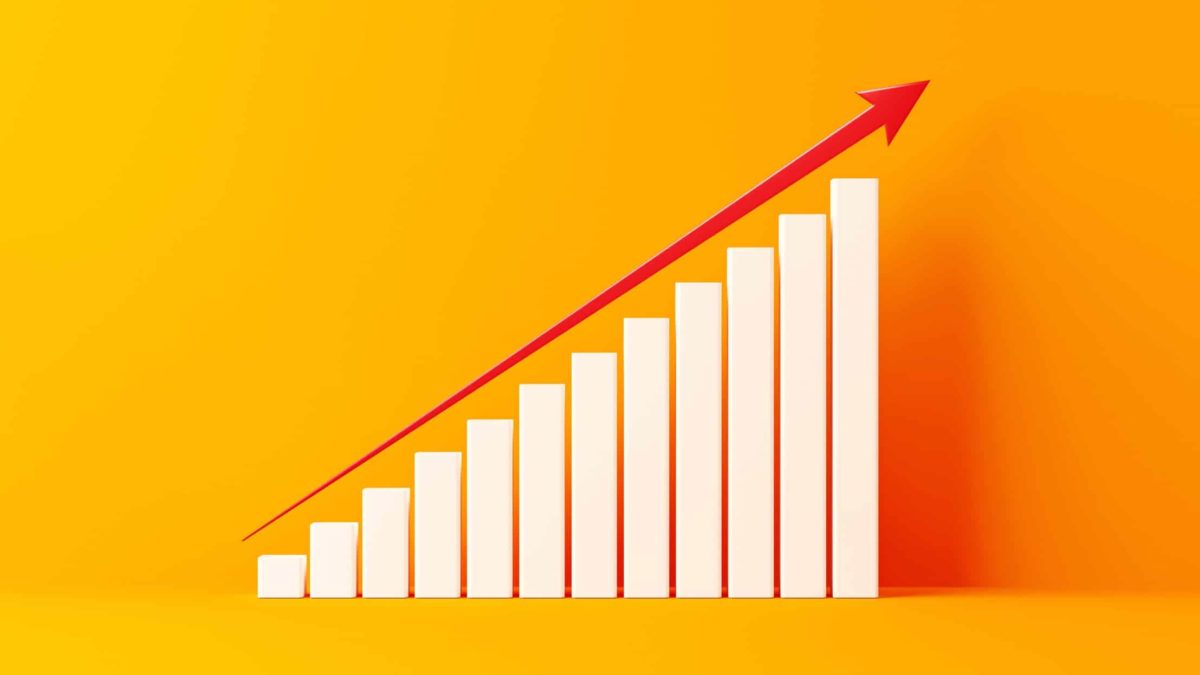
Australia's treasurer Jim Chalmers attends a press conference regarding interest rates in Canberra's federal parliament house on July 8, 2025. (Photo by DAVID GRAY / AFP) (Photo by DAVID GRAY/AFP via Getty Images)
BREAKING: New reports reveal that over 50% of Australians rely on government funding to survive, raising urgent concerns about the nation’s economic future. Treasurer Jim Chalmers faces mounting criticism as Australia is now labeled one of the largest welfare states globally, often referred to as the “Venezuela of the Pacific.”
This alarming revelation comes amid political distractions from Chalmers, who is attempting to shift focus with “productivity roundtables” while the reality of a growing welfare dependency looms large. The nation is at a critical crossroads, and the implications of this dependency are profound, affecting both individuals and the economy as a whole.
The reliance on government income is not limited to public sector jobs; it encompasses a vast network of welfare systems, including the National Disability Insurance Scheme (NDIS), grants, and various social benefits. This shift signals a troubling trend where more Australians equate survival with government support rather than employment, fundamentally altering the socio-economic landscape.
Authorities warn that this dependency is not merely a result of recent economic policies but reflects a deeper structural issue. As Robert Carling from the Centre for Independent Studies states, “A culture of dependency and entitlement has taken root in the population,” highlighting the urgency of addressing this growing issue.
The ramifications of such a significant portion of the electorate living off state support are severe. It complicates potential legislative reforms and diminishes the political will to make unpopular decisions that could benefit the broader economy. With a substantial number of Australians now relying on government support, any attempts to reduce public spending could lead to political backlash, making immediate reform increasingly difficult.
This scenario has been exacerbated by the Covid-19 pandemic, which saw a significant increase in government-funded roles. As lockdowns forced many into unemployment, the subsequent expansion of public sector jobs under pandemic measures created an unsustainable reliance on government income. Critics argue that extending these roles beyond their intended period has resulted in a debt-laden economy struggling to recover.
Looking forward, experts emphasize the need for a transformative approach to reinvigorate the private sector. Immediate actions suggested include slashing business and income taxes, eliminating excessive regulations, and reintroducing flexible work arrangements to incentivize individuals to transition from welfare to work. The government must create an environment where earning potential is maximized, allowing Australians to thrive without relying on social programs.
Yet, the challenge remains daunting. With lobbyists and activist organizations fiercely defending the status quo, any attempt to dismantle this welfare structure faces significant resistance. As political leaders grapple with these realities, the need for decisive action has never been more urgent.
In conclusion, Australia stands at a pivotal moment. The dependency on government support is reshaping the nation’s identity and poses a profound threat to its economic viability. As discussions continue in Canberra, the question remains: can the government rise to the challenge and navigate a path towards a more self-sufficient society? Only time will tell if Australia can overcome this welfare crisis and restore balance to its economy.
Stay tuned for further updates on this developing situation.





